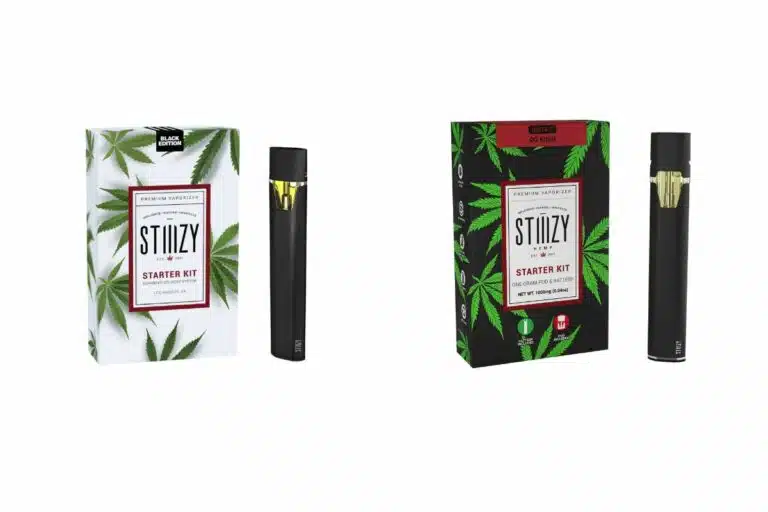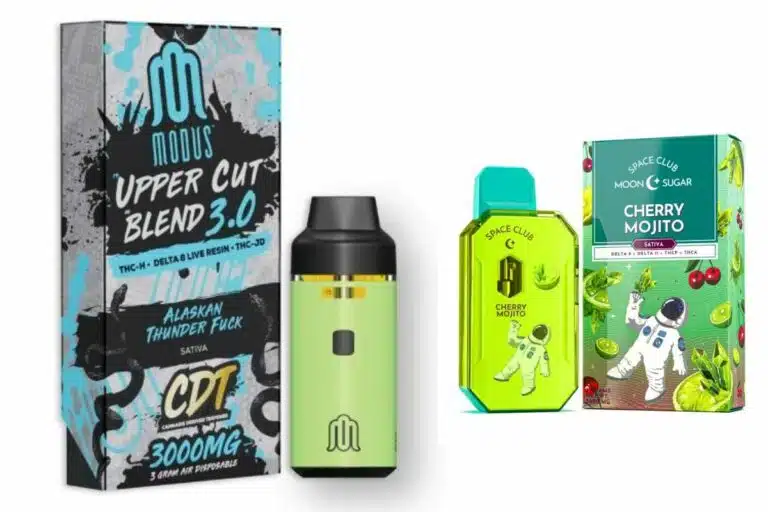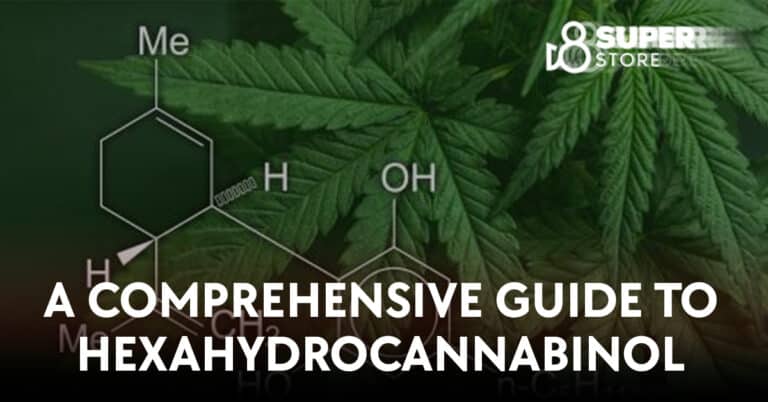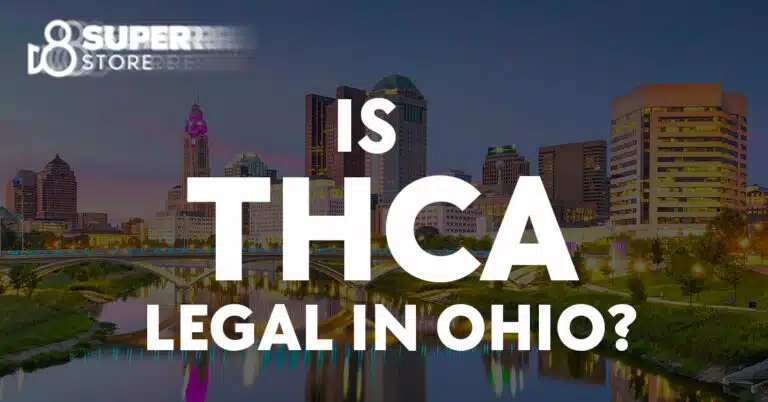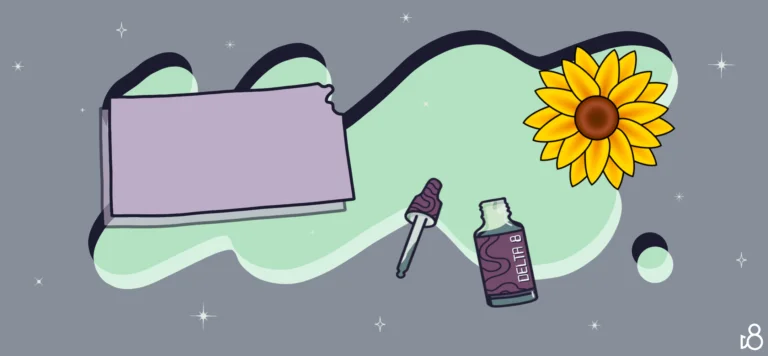Is Delta-11 Legal in Washington: Understanding State Regulations
Diving deep into the world of weed, especially the ins and outs of Delta-11 THC, is super important. And why is that? Well, because the laws about weed in the United States change more often than someone changing their socks. Watch Washington state closely; they’re pioneers in saying “yes” to weed for fun and health. If Washington is where you hang your hat, driven by pure interest or because you’re deep in the business, you’ve gotta stay sharp and follow the rules.
Table of contents
The legal landscape surrounding various THC isomers, such as Delta-8 and Delta-9 THC, has been widely discussed. However, the specifics about Delta-11 THC, which is less commonly known, may not be as clear. It’s important for you to be aware of the legal status of Delta-11 THC in Washington to ensure compliance with state laws while also understanding what your rights and constraints are as a consumer or a provider.
While the commonly known Delta-9 THC is regulated, alternative compounds, including Delta-8 and potentially Delta-11 THC, often exist in a gray area. As laws and regulations can change and interpretations may vary, staying informed with the most current information is key. Remember to consult with legal experts or official state resources for the most accurate and up-to-date information regarding the legality of Delta-11 THC in Washington.
Legal Landscape of Hemp-Derived Cannabinoids
Your understanding of the legal status of hemp-derived cannabinoids hinges on two critical pieces of legislation: the 2018 Farm Bill at the federal level, and specific state laws, using Washington as a case in point.
2018 Farm Bill and Federal Law
The 2018 Farm Bill represents a significant shift in the federal policy regarding hemp, which is cannabis with a delta-9-tetrahydrocannabinol (THC) concentration of no more than 0.3% on a dry weight basis, making it federally legal. This reclassification removed hemp and its derivatives from the definition of marijuana under the Controlled Substances Act (CSA). Consequently, cannabinoids extracted from hemp, like CBD, fall into a category distinct from cannabis classified as a Schedule I drug, which is still subject to federal prohibition.
Washington State Law
In Washington, the legal framework aligns with federal law but with additional state-specific regulations. The state’s approach to cannabis includes both marijuana, which is regulated for adult use, and hemp-derived products. One must carefully navigate these laws, as the Washington State Liquor and Cannabis Board provides guidance on the production, processing, and sale of hemp and cannabis products. However, it’s essential to note that state legislation and regulation are responsive to changes in the broader legal landscape, with potential updates that could reshape the current regulations.
Understanding Delta 11 THC
Delta 11 THC is a cannabinoid with complex properties and effects. In this section, you’ll discover its chemical identity and see how it compares to other cannabinoids.
Chemical Profile of Delta 11
Delta 11 THC is a tetrahydrocannabinol (THC) isomer, much like its counterparts delta 9, delta 8, and delta 10. As a cannabinoid, it interacts with your body’s endocannabinoid system, but its specific binding affinities and psychotropic effects may vary from the more commonly known THC isomers. Delta 11 is structurally similar to delta 9 THC, the primary psychoactive compound in cannabis, yet it has unique aspects to its molecular makeup that could influence its potency and efficacy.
Comparison with Other THC Isomers
- Delta 9 THC: This is the most prevalent and researched form of THC found in cannabis. It’s known for its strong psychoactive effects.
- Delta 8 THC: A less potent isomer, delta 8 is noted for a clearer high and reduced anxiety for some users. Its legal status varies by state, which has prompted significant discussion.
- Delta 10 THC: This is a newer discovery with effects that are believed to be less potent than delta 9 THC, resembling more of a sativa-like feel in its psychoactivity.
In comparison, delta 11 remains largely under-researched and not widely accessible. Your experience with this cannabinoid may differ significantly from the effects of delta 9 THC or the milder delta 8, but conclusive statements about its properties cannot be confidently made without more scientific investigation.
Legality of Delta-11 in Washington
Before delving into the details, it’s essential to recognize that Washington has specific state laws that comprehensively address the legality of hemp-derived THC compounds, including Delta-11. Your understanding of these regulations is crucial whether you’re a consumer or part of a business.
State Regulations and Policies
Washington State has taken a determined stance on the regulation of cannabinoids derived from hemp. Delta-11 THC, despite being lesser-known, falls under the same scrutiny as its more famous relatives like Delta-8 and Delta-9. In the state of Washington, any compound that exhibits psychoactive effects similar to Delta-9 THC, regardless of whether it’s derived from hemp, is subject to regulation under the state’s controlled substances act. However, the specific mention of Delta-11 is rare in the available legal texts. If you are involved with Delta-11 either in a lab setting or from a commercial perspective, you’ll need to track policy updates closely as they can change the legal landscape quickly.
Implications for Consumers and Businesses
For consumers in Washington, it’s imperative to be mindful that purchasing Delta-11 could lead to legal issues, similar to purchasing other regulated THC products. Although it may be derived from federally legal hemp, the interpretation of state laws places it in a gray area. Businesses should note that the sale of Delta-11 is similarly risky and could provoke legal action without clearer state regulations. It’s wise to consult with legal experts who are knowledgeable in Washington’s state laws on hemp-derived THC compounds to navigate the current market. Keep in mind that compliance with both state and federal laws is critical for your business’s legality and longevity.
Safety and Effects of Delta 11 THC
When considering Delta-11 tetrahydrocannabinol (THC), you should be aware that research into its safety profile and effects is still evolving. Like other cannabinoids, Delta-11 THC is a compound found in the cannabis plant which may offer psychoactive effects and potential therapeutic benefits when consumed. It’s important to understand its potential impact on your health and well-being.
Potential Benefits
Delta-11 THC may deliver a variety of benefits similar to other forms of THC, like Delta-8 and Delta-9. Some users report experiencing a euphoric high that can lead to feelings of relaxation and intensity in sensory perception. While scientific data is limited, anecdotal accounts suggest that consuming Delta-11 THC can produce a significant level of euphoria and mentally uplifting experiences.
Known Side Effects
With any psychoactive substance, there are potential side effects to consider. Consumption of Delta-11 THC may result in common repercussions such as dry mouth and temporary shifts in short-term memory functions. A subset of users might encounter anxiety or discomfort, particularly with higher doses. It’s crucial to approach Delta-11 THC with caution and respect for its potent nature, to minimize adverse reactions while exploring its potential.
Industry and Market Considerations
As you navigate the complexities of Delta-11’s legal status in Washington, an awareness of its influence on product options and the broader hemp market is crucial. Your understanding of these dynamics can shape your expectations and choices within the industry.
Product Availability and Forms
Delta-11 THC, while lesser-known than Delta-9 or Delta-8, has emerged in a variety of product forms. You’ll find it present in the form of vape cartridges, offering convenience and immediate effects. Edibles, another popular choice, range from gummies to baked goods, delivering a longer-lasting impact due to slower metabolism. Furthermore, the availability of pure compounds like distillates and isolates signifies the adaptability of the industry to consumer needs.
- Vape Products: Typically available in pre-filled cartridges.
- Edibles: A diverse selection from gummies to chocolates.
- Pure Forms: Including both distillates for potency and isolates for targeted use.
Impact on Hemp Market
The introduction of Delta-11 into the market affects an already rapidly expanding hemp industry. As producers and sellers innovate, you witness an increase in the variety of hemp products available to you. This diversification signifies not only the exponential growth but also the evolving regulatory landscape that businesses must navigate. The result is a dynamic hemp market, characterized by:
- A widening array of products, from traditional flowers to modern concentrates.
- An evolving focus on refinement techniques to meet consumer demand for specific cannabinoids.
It is essential for you to track these changes, as they directly influence product legality, safety, and quality standards.
Delta 11 THC Testing and Regulations
When considering the legality of Delta 11 THC in Washington, you should be aware of the rigorous laboratory testing procedures that products undergo and how they align with federal and state compliance regulations.
Laboratory Testing
Laboratories are essential in ensuring that Delta 11 THC levels meet the regulatory standards for safety. In Washington, accredited labs conduct stringent drug tests on cannabis products to determine their cannabinoid content. These tests are designed to measure levels of Delta 11 THC and ensure they fall within the legal thresholds. It’s crucial for you to verify that the products you’re interested in have a certificate of analysis (COA) from a qualified lab, indicating that they’ve passed the necessary testing for potency and contaminants.
Federal and State Compliance
The legal status of Delta 11 THC is determined by both federal regulations and state laws. Under the Controlled Substances Act, compounds derived from hemp with less than 0.3% Delta 9 THC are not scheduled by the DEA. However, since laws are dynamic and can vary on a state level, you need to stay informed about the specific regulations in Washington. State laws dictate the legality and enforceability of Delta 11 THC products. Compliance with both state and federal law is paramount for dispensaries and consumers alike to avoid legal repercussions.
Consumer Information
When considering the purchase and use of delta-11 THC products in Washington, it’s essential to understand legality, potency, and usage guidelines. Familiarize yourself with industry standards and be aware of hemp-derived substances’ psychoactive effects.
Purchasing Delta 11 Products
When you’re looking to purchase delta-11 THC products, it’s crucial to confirm that the items are hemp-derived and fall within the legal THC limits in Washington. Delta-11 is one of the cannabinoids similar to delta-8 and delta-9 THC. Buy from reputable sources that provide product potency and lab reports to ensure compliance with state regulations.
- Check for Legality: Confirm the delta-11 THC product is permissible under state law.
- Verify Potency: Look for clear labeling of THC content to understand the product’s psychoactive potential.
- Ascertain Quality: Purchase from retailers that provide third-party lab testing results for their products.
Usage and Dosage Guidelines
The psychoactive effects and potential benefits of delta-11 THC mean you should use these products responsibly. Starting with a low dosage and gradually increasing it can help you find a comfortable level while minimizing risks. Always follow the manufacturer’s guidelines and consider consulting with a healthcare provider for personalized advice.
- Start Low, Go Slow: Begin with a small dose, especially if you are new to THC products.
- Responsible Consumption: Be mindful of the psychoactive effects and never drive or operate heavy machinery after use.
- Healthcare Consultation: Seek medical advice if you’re uncertain about how delta-11 THC may interact with your health conditions or other medications.
Remember, the THC industry, including the market for delta-11 THC, is evolving, so stay informed on the latest laws and research surrounding these products.
Interstate Legal Considerations
When considering the legality of delta-11 and other cannabis derivatives in Washington, it’s essential to understand the implications of state laws, particularly regarding surrounding states. This includes the transportation and sale across state lines, which are governed by different statutes that can greatly affect both consumers and businesses.
Legal Status in Neighboring States
- Idaho: It maintains a strict stance, with all forms of cannabis, including delta-8, delta-9, and delta-10 THC, being illegal.
- Oregon: Offers a marked contrast, where cannabis, including various THC derivatives, is legal for both medical and recreational use.
- Alaska: Similar to Oregon, cannabis is legal for adult use, reflecting a more permissive legal environment for THC isomers.
To further elucidate:
| State | Delta-8 | Delta-9 THC | Delta-10 | Other THC Isomers |
| Idaho | Illegal | Illegal | Illegal | Illegal |
| Oregon | Legal | Legal | Legal | Legal |
| Alaska | Legal | Legal | Legal | Legal |
Transportation and Sale Across State Lines
Cannabis laws vary significantly across the United States. For instance:
- Colorado and California: Both states have established legal markets for cannabis and its compounds, including delta-11.
- Arizona: Permits the use of cannabis derivatives for certain approved purposes.
However, transportation across state lines remains a federal offense, as cannabis remains a Schedule I drug under federal law. This means even if you’re traveling from Washington to a state with legal cannabis, such as Oregon or Alaska, you must be aware that crossing state lines with THC products may expose you to legal risks. Here’s a quick view of some neighboring states’ stances:
| State | Legal for Recreational Use | Legal for Medical Use | No Legal Recognition |
| Idaho | ❌ | ❌ | ✔️ |
| Oregon | ✔️ | ✔️ | ❌ |
| Alaska | ✔️ | ✔️ | ❌ |
| Colorado | ✔️ | ✔️ | ❌ |
It’s pertinent to stay updated with the recent changes in legislation across states to ensure compliance with all relevant laws, especially as the regulatory landscape for cannabis and its derivatives is continually evolving.
Frequently Asked Questions
Before diving into the specifics, you should be aware that cannabinoid laws can be intricate and are subject to change. This section provides up-to-date insights into Delta 11 THC’s status in Washington State and addresses common questions related to its use, effects, and legality.
What is the legal status of Delta 11 THC in Washington state?
Delta 11 THC, like most cannabinoid variations, falls under a complex legal framework in Washington State. It is advised to consult current state legislation and regulatory updates to understand the precise legal status of Delta 11 THC, as this can evolve with new laws and regulations.
How does the potency of Delta 11 compare to Delta 9 THC?
Delta 11 THC is a lesser-known cannabinoid and research on its potency as compared to Delta 9 THC is limited. Typically, the psychoactive effects of different THC analogs can vary, so the exact potency and impact of Delta 11 may differ from the well-studied Delta 9 THC.
What effects can be expected from using Delta 11?
The effects of using Delta 11 THC have not been as extensively researched as Delta 9 THC, but it can be anticipated to produce psychoactive effects similar to other THC compounds. These effects may vary based on individual tolerance and the amount consumed.
Can using Delta 11 result in a failed drug test?
Using Delta 11 THC could potentially result in a failed drug test, as THC metabolites are often the target of these tests. It is essential to be aware that most drug screenings do not differentiate between various THC isotopes.
Are there any safety concerns associated with the consumption of Delta 11?
As with any cannabinoid, it is crucial to consider safety concerns which may include impaired judgment or coordination. Due to the lack of comprehensive research on Delta 11 THC, exercising caution and consulting healthcare professionals before use is advised.
Which cannabinoid variations are permissible under Washington state law?
Washington state law permits several cannabinoid variations, including CBD and, to an extent, Delta 9 THC. However, the legality of cannabinoids like Delta 11 remains subject to the specific wording of state legislation and interpretation by authorities.


